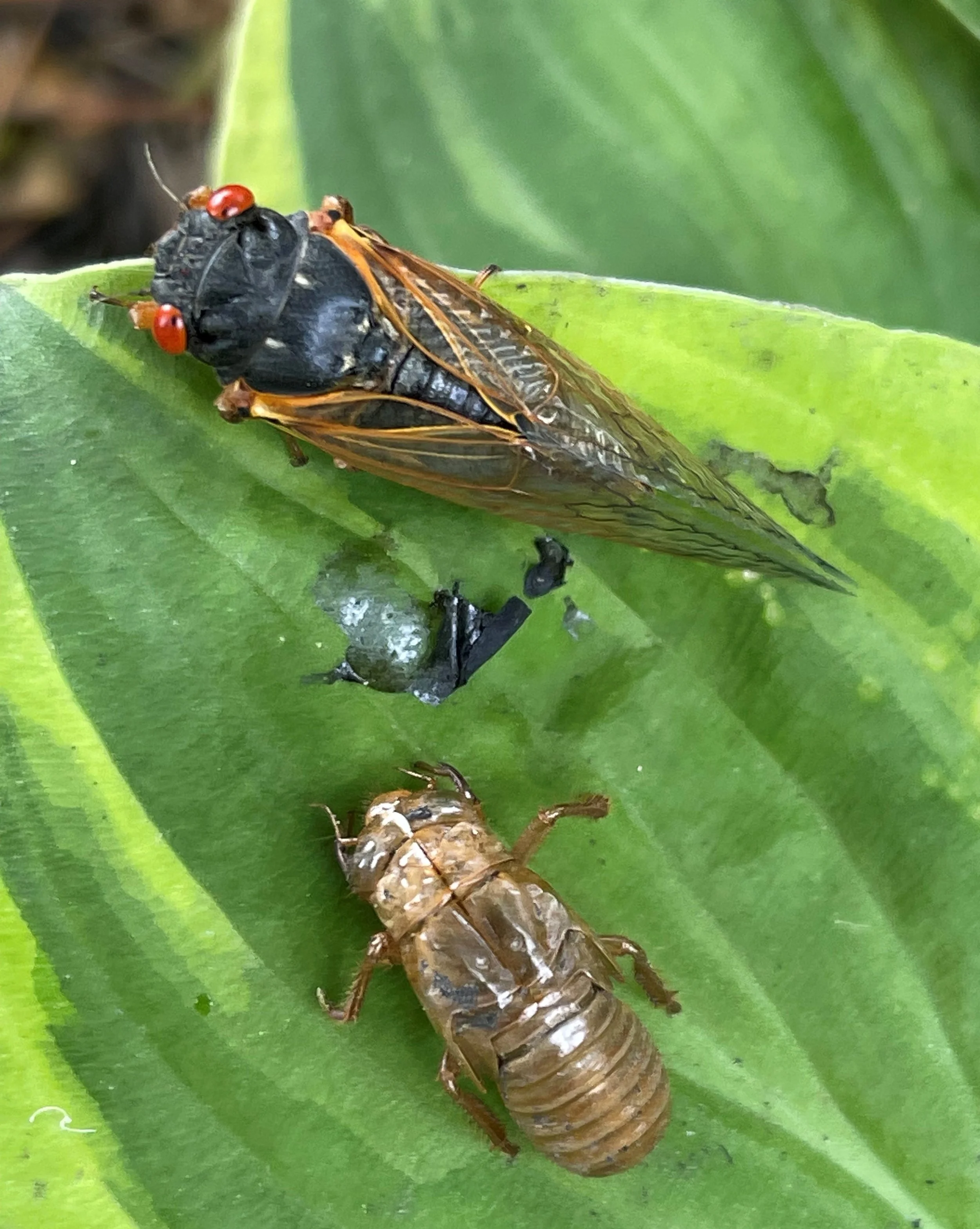Patience (part 1): Lessons of the 17-year cicada
This past summer I had the blessing of being able to visit my parents in Ohio after a year and a half of pandemic separation. It was a special year in 2021 as the Cicada Brood X, or Great Eastern Brood, had just hatched. For those of you unfamiliar with cicadas, these large insects come in a variety of species, colors, sizes and songs. Several types of cicadas exhibit a very prolonged life cycle, with one of the longest being the 17-year life of Brood X. Brood X is a large family of cicadas (numbering perhaps in the billions) that hatch and swarm in the Midwest and eastern United States. These beautiful creatures are a sight to behold and look like something from outer space. The cicadas of Brood X have black bodies, orange translucent wings, and beady red eyes.
Amazingly, this cicada hatches from its egg as a nymph, drops from a tree branch to the ground, burrows into the dirt, and lives there for 17 years (yes, you read that correctly), patiently biding its time, feeding off root sap to grow and sustain itself. And then something miraculous happens. Propelled by a divinely-inspired internal clock, all billion cicadas use their large front “digger” claws to burrow skyward. They climb up every shrub, plant, and tree in sight, then molt their shells, leaving behind the no-longer-needed excavating carapace. There were literally thousands of burrow holes in the ground and carapace shells littering my parents’ back lawn.
Winged beauties emerge from their shells, unfurl their wings, walk around like dopey drunkards, then fly up into the trees to start “singing” for their mates. The sound of billions of cicadas serenading in unison can be deafening…nature’s loudest insect. The synchronous waxing and waning of this sacred chorus of nature is quite remarkable. Some (including myself) find this sound soothing (complementing a relaxing book-read or nap on the porch), while others find the sound irritating and anxiety-provoking. Once they find a mate and eggs are laid, they quickly go to meet their Maker. Quite an amazing life cycle…17 years underground to prepare for a 4 week love affair in the air!
This is the third Brood X hatch in my lifetime, and I can trace the arc of my life by memories of cicada hatches. Finishing up elementary school…fast forward to medical school…fast forward to mid-career. My dad found an old video of me from 2004, the last time this brood hatched, with cicada swarms dive-bombing me. I spent several peaceful afternoons watching and listening to this wonderous event on my trip home to Ohio. During this respite, I was struck by the idea of how training to be a physician can seem a bit like the 17-year cicada lifecycle. For me, it was 14 years of post-college medical training. This lengthy journey can drag on. When will I finally be able to graduate and work independently? When will I finally be able to break through the ground, see the light of day, and spread my wings? When will I know if I have “made it?” Have I wasted my youth and years away? Can’t I cut this short and get on with it?
These amazing bugs illustrate the value of patience…slowly growing, waiting, preparing. All on God’s schedule, in God’s time, for His purpose. Crawl up too early, get too impatient, and there will be no fellow cicadas to mate with. We can all take a lesson from that, be it in persisting through the long road of medical training, weathering a pandemic, living with a chronic illness like cancer, or just making time to take a break from the hectic pace of work and daily life to visit with family. Finding the time and space to appreciate God’s wonders in nature gives us an opportunity to quiet down the mind and be present with gratitude. We’ve all heard about learning to stop and smell the roses…but for me, it was the blessing of being able to stop and listen to the cicadas.










